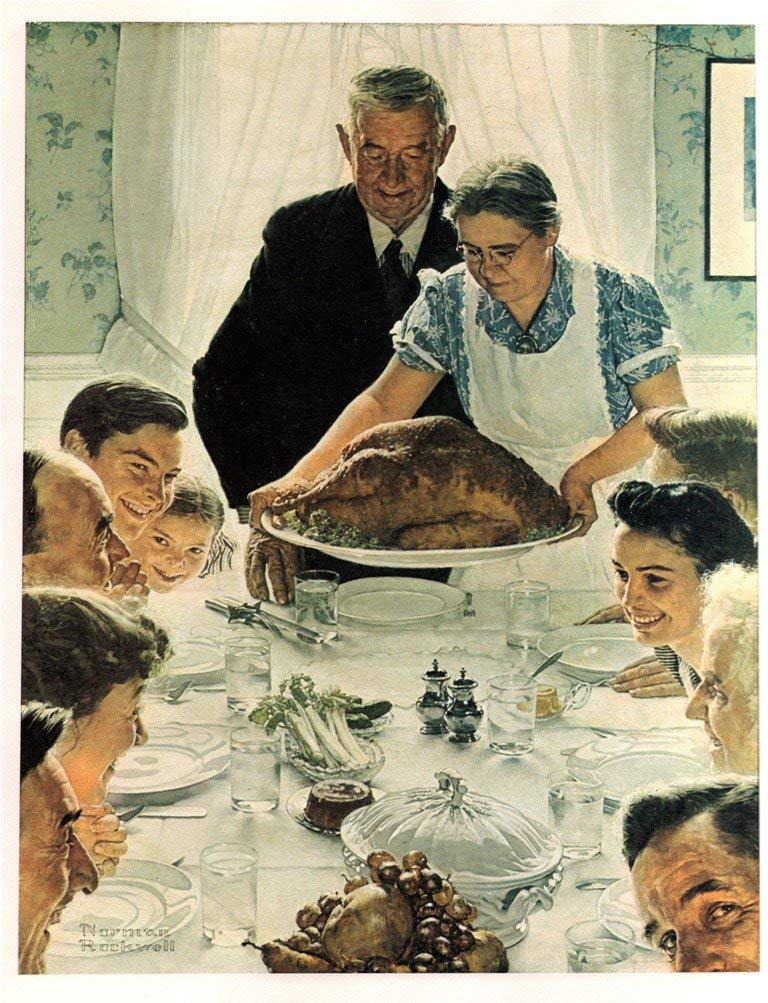This post is the first of several generated by my encounter with David Brooks’ recent Atlantic article “The Nuclear Family Was a Mistake”. I highly recommend that you read the entire article. Heads up: If your reading threshold is 288 characters or less, the article will be a challenge.This post employs local TV news program strategy of teasers, just enough to keep you tuned in until the next segment.
For me, David Brooks is a cogent voice in a largely incoherent media wilderness. For someone who holds tightly an assumption that a root cause of the disintegration of our society is the breakdown on the family, this article is a must read. The following quote sets the tone for the article.
If you want to summarize the changes in family structure over the past century, the truest thing to say is this: We’ve made life freer for individuals and more unstable for families. We’ve made life better for adults but worse for children. We’ve moved from big, interconnected, and extended families, which helped protect the most vulnerable people in society from the shocks of life, to smaller, detached nuclear families (a married couple and their children), which give the most privileged people in society room to maximize their talents and expand their options. The shift from bigger and interconnected extended families to smaller and detached nuclear families ultimately led to a familial system that liberates the rich and ravages the working-class and the poor.
As I read the article, I was reminded of how important family issues are, not only societally but personally. It seems any conversation of consequence ultimately will lead to some discussion of family brokenness or dysfunction. Our dreams, prayers and aspirations for our children and grandchildren reflect our vision of an “ideal family”. I suspect, for many, that vision is a mythical “nuclear family”
“…a certain family ideal … the two-parent nuclear family, with one or two kids, probably living in some detached family home on some suburban street.”
For that reason, “The Nuclear Family was a Mistake” was a challenge I couldn’t resist.
Additionally, family ideals, …”family values”, …”a Christian family” …”Focus on The Family… are familiar expressions in Christian churches. The following quote reflects the importance of an ideal family to Christian faith and success of society and the church:
…“The Ideal Christian Home” is a place where the perfect standard of the life of Jesus Christ is in place. If the society will be a habitable place for people to live together in peace and harmony, it must begin from a home. If a home produces Godly character, the society will be a safe haven for all to live in. WE CAN ONLY HAVE A BETTER SOCIETY with good character, good conduct, peaceful and loving atmosphere, when we have an ideal Christian Home. Hence, without an ideal home, the society can only get worse and be thrown into chaos. As good children are raised from good homes, so also armed robbers, kidnappers, drug addicts, prostitutes, etc are raised from bad homes. If the home is correct, the society will be correct. Hence, if the home is correct, the Church will be as well.
https://guardian.ng/sunday-magazine/the-ideal-christian-home-part-1/
Albeit, the above quote is atypical for many Christian churches, I believe it reflects a deep impulse that shapes ministry and outreach in many, if not most Christian churches. It is not a huge leap to say that some would assert the answer to our moral and social ills is “Christian” families. This presumption can be seen in many mission, goals and values statements, implicitly and explicitly.
For me, the importance of healthy families in creating and sustaining healthy societies and churches is not disputable.
The rub comes with our understanding what exactly is an “ideal family”. It is my opinion, the prevailing “ideal family” is perceived as a “nuclear family” seen through nostalgic lens. In that regard, Brooks’ article presents a challenge that must not be ignored.
Consistent with the evening news, I will leave you with this quote:
…while social conservatives have a philosophy of family life they can’t operationalize, because it no longer is relevant, progressives have no philosophy of family life at all, because they don’t want to seem judgmental. The sexual revolution has come and gone, and it’s left us with no governing norms of family life, no guiding values, no articulated ideals. On this most central issue, our shared culture often has nothing relevant to say—and so for decades things have been falling apart.
Stay tuned for the next post…

